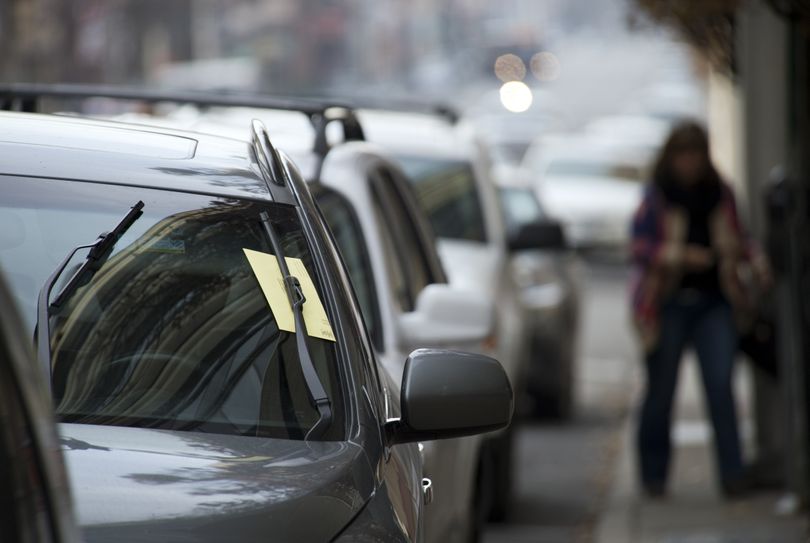Four parking innovations - from the future!

The city of Spokane announced today that it was expanding its pay-by-phone feature from just a few meters near City Hall to all 3,500 meters in its system.
The technology is innovative and convenient, and many parkers will surely applaud the new feature. But there’s a lot more innovation to be had, according to CityLab, a blog at TheAtlantic.com that “informs and inspires the people who are creating the cities of the future – and those who want to live there.”
The blog points to the work of Donald Shoup, an urban planning professor at UCLA. The ideas of the aptly named “prophet of parking” probably won’t resonate with everyone. Still, he’s one of the few thinking about it.
First, Shoup says cities should adopt meter kiosks that allow drivers to tap in their license plate numbers. The technology would allow cars to re-park in the same zone without paying anymore. Pittsburgh has reportedly seen an increase in parking revenue and a decline in tickets issued since it began using the technology.
Second, Shoup recommends giving parking discounts to cars that are smaller and more environmentally friendly cars. For instance, a Rolls Royce Phantom, which is 20-feet long and gets 14 miles per gallon, would get no parking discount. But a Scion iQ, at ten-feet long and 37 mpg, gets a 50 percent discount. Aside encouraging residents to drive cars that don’t emit as much foul air, Shoup argues that folks who drive bigger cars can afford it.
“Will parking discounts for small cars be fair?” Shoup writes. “The manufacturer’s suggested retail price starts at $474,990 for a 20-foot Rolls Royce Phantom and $13,270 for an 8.8-foot Smart car. In this case, it seems unfair not to offer parking discounts for smaller cars. Most people who can afford to buy a longer car can probably afford to pay more to park it.”
Third, Shoup recommends charging residents less than visitors. The argument here is that locals already pay taxes to upkeep the streets. That, and it encourages people to shop closer to home.
Fourth, Shoup said parking meter revenue should be used for something other than going just toward the city’s coffers. In Spokane, that’s already begun a bit. When new credit-card meters were installed last year, some of the revenue was promised toward streetscaping and paying for a new downtown police officer position.
What do you think? Are Shoup's ideas too radical? Don't go far enough?
